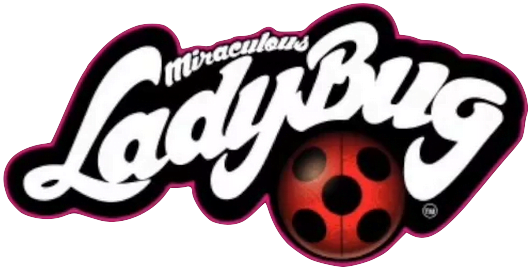Holy crap oh my goodness this show is so good people. I’d normally like, try and structure this whole thing somewhat and there will be time for that but for now, I’m just going to gush about some things in this series I really hecking like.
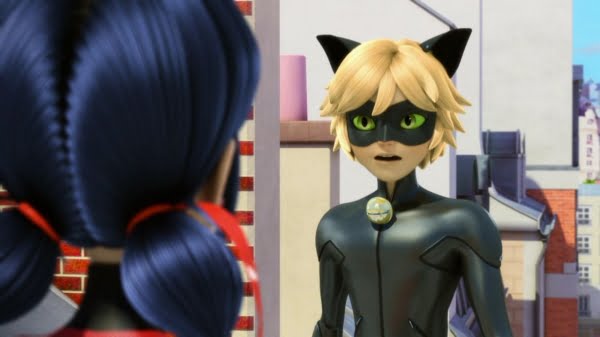 Here’s a thing! Ladybugs are a symbol of luck. I didn’t know that going in, and for a little while I was confused as to why they chose the two characters they had – the black cat and the ladybug and I just didn’t quite get why. Then when you find that ladybugs are good luck, the imagery and meme of the black cat as bad luck and – and that’s good use of imagery and concept space! That gives you space to look at the two characters, gives you a nice, simple place to start from! It anchors characters to existing media spaces and it gives them distinct, interesting visual theming!
Here’s a thing! Ladybugs are a symbol of luck. I didn’t know that going in, and for a little while I was confused as to why they chose the two characters they had – the black cat and the ladybug and I just didn’t quite get why. Then when you find that ladybugs are good luck, the imagery and meme of the black cat as bad luck and – and that’s good use of imagery and concept space! That gives you space to look at the two characters, gives you a nice, simple place to start from! It anchors characters to existing media spaces and it gives them distinct, interesting visual theming!
That means that when they work together in the same space, despite the fact the two characters are basically the same style of fighter, and move more or less the same way you’re never left confused as to which one you’re seeing in a moment of action because one is bright honking red and the other is black, but neither of their costumes seem to be of a different type to the other!
Also if luck is the thing that defines the two characters it means your solutions to problems can be extremely outlandish or one-time! A character who relies on luck as a theme means that if she only gets a thing to work once that’s enough, unlike characters like Batman who rely on being heavily prepared! This means things can be both more thematically interesting and varied while also showing off the character’s quick wits!
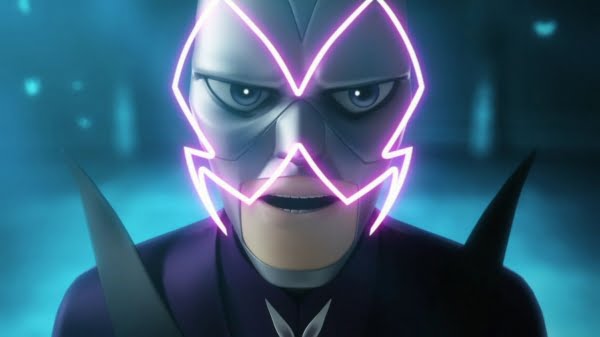
Oh and the enemies! All the enemies are empowered by the real villain when they demonstrate a moment of emotional distress that the can’t handle or process properly – which is to say, this is a series where the big conflict point is processing your emotions properly. Nobody’s sadness or anger is shown as being illegitimate, and nobody’s emotions are used to excuse or justify the things they do – because the villain is using magical powers to take control of them, there’s no need to do that.
This is great because it means you can treat emotional duress as important and worth respecting, you can show characters repeatedly resisting it or engaging with it to show their growth as people, and you can even show how some people’s processing can be inhibited or expressed. Then you get the added dimension that both adults and children fall prey to this power set, for a variety of different reasons – some are meanspirited and cruel, but many of them are frustrated or misunderstood! This means there are stories about handling emotions as a child and as an adult and at no point does the story just say ‘well suck it up.’
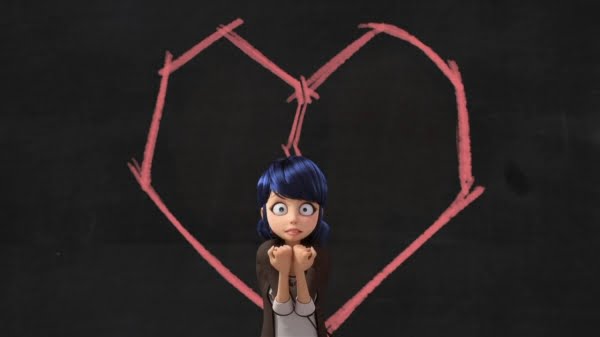
So you have these characters who are directly expressing rudimentary metaphors about emotional processing in a way that involves actual cool looking fights with some dynamic, interestingly chosen characters who fight and think and are cool at things, and then the aftermath is about watching the protagonists grow in light of the things they now understand about the emotional process their friends went through, and there’s no guilt or rancor about the times they were turned. There is a legitimate recognition that someone else preyed on their emotional state and ‘made’ them into villains, and that those moments of distress or anger or rage don’t represent who they truly are!
This is romantic storytelling at its most primal, not romance-as-interaction, where people are smoochin’ and doin’ smooches and that’s all the stories are moving about, but romance where human emotion are the driving forces of the universe, where the story is always moving in ways to make human emotion run against other human emotion! Coincidence transpires – and it’s fine, because the story isn’t about the realism of events – and then that brings people’s emotions to bear against one another!
Things don’t need explaining, they need understanding.
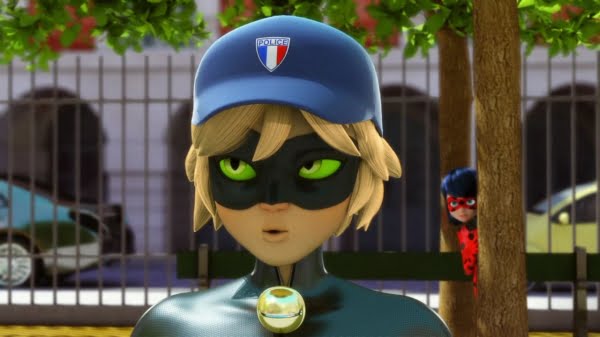
Plus it’s funny. It’s funny in a way that doesn’t treat its viewers – who are kids – like idiots. It doesn’t pitch its comedy low, and that means it projects a sense of respect for its viewers. They show things only a few moments, and don’t need to over-explain it – basically it’s like an exact, functional opposite to Suicide Squad, which overstates everything and is also grim and dark and grungy for no good reason.
I have more, but I kind of want to save more in-depth conversation about it until I’ve rewatched some of it, but also to do a bit more of an in-depth read on Marinette as a character and what choosing her has done for this series as a superhero story.
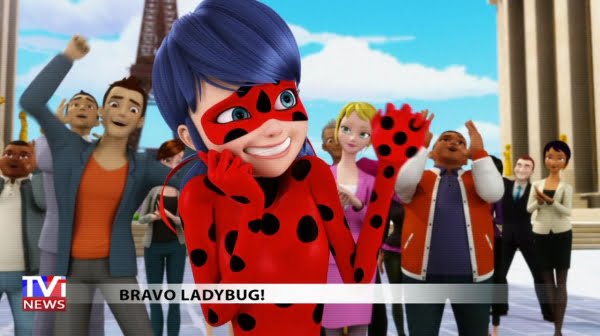
God it’s a good time to like superheroes.
